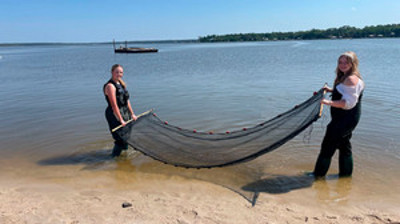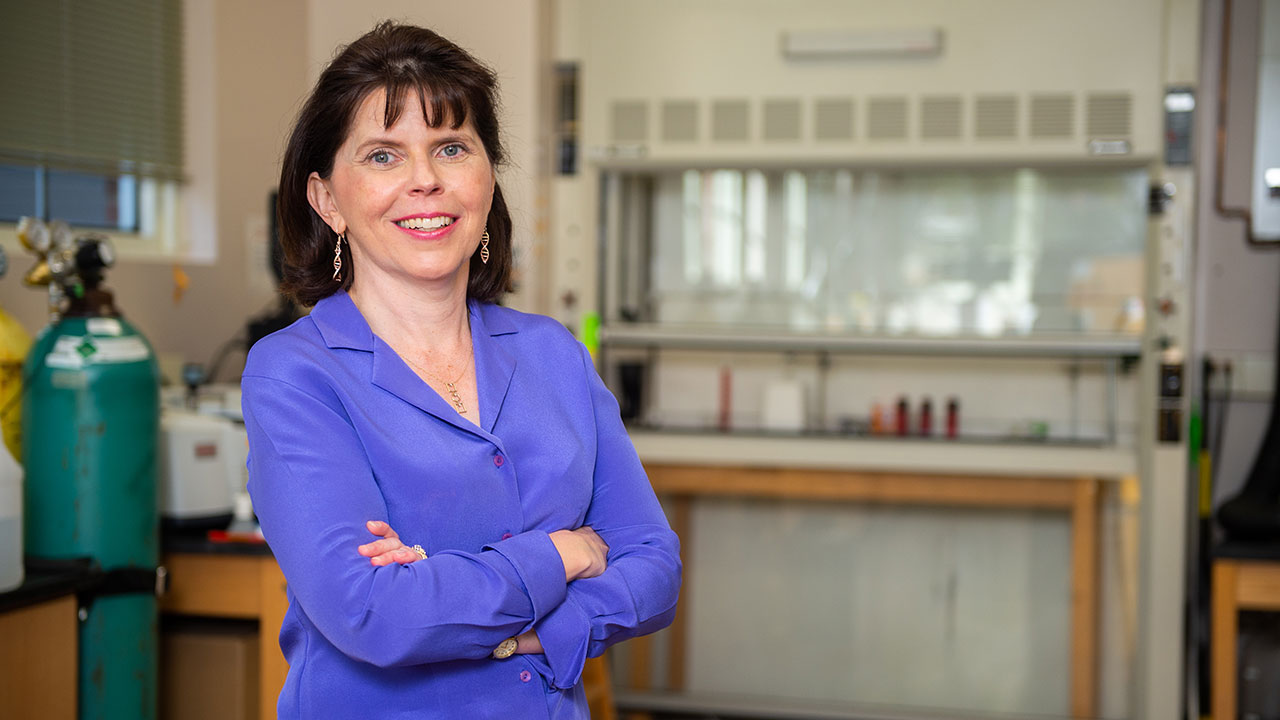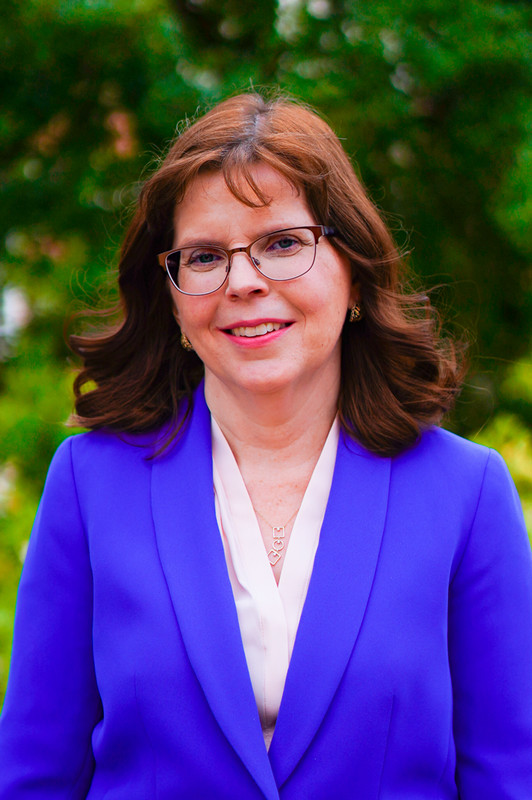Professor in chemical engineering leads USDA grant to stir agricultural interest among middle schoolers
Published: Oct 30, 2024 9:10 AM
By Joe McAdory
One-fourth of the U.S. agricultural workforce is approaching retirement age, according to a U.S. Department of Agriculture (USDA) report. However, Auburn University researchers are planting seeds today that could help fill the personnel gap tomorrow.
Project FARM (Fostering Agricultural Research and Mentoring), a three-year, $500,000 USDA/National Institute of Food and Agriculture (NIFA) grant led by Virginia Davis, principal investigator and the Dr. Daniel F. and Josephine Breeden Professor in the Department of Chemical Engineering, is expected to drive agricultural knowledge and career interest among hundreds of Alabama middle schoolers.

“We all need to eat, we all need clean water and we all need carbon dioxide sequestration from trees,” Davis said. “The time is now to ensure that our next generation has the toolset to take agriculture forward.”
Part of the USDA/NIFA $1.7 million initiative, “Professional Development for Agricultural Literacy Program,” Davis is joined by co-principal investigators Mary Lou Ewald, outreach director at the College of Sciences and Mathematics; Eve Brantley, professor in the College of Agriculture and associate director of Alabama Cooperative Extension System at Auburn University; Becky Barlow, associate dean for Extension and assistant director for agriculture, forestry & natural resource Extension programs; and Jessica Gilpin, assistant director of COSAM STEM outreach.
Auburn faculty, staff and extension professionals will guide 14 middle school science teachers from Pike and Elmore counties toward integrating agricultural activities into curricula and science fairs with a special focus on food supply, water and forestry.
Objectives include:
- Enhancing teacher knowledge of agricultural topics related to food, water and forests.
- Enhancing teacher engagement in the regional/national agricultural literacy ecosystem comprised of regional extension agents, extension-led citizen science, university resources, educational sites, and online resources.
- Development, implementation and dissemination of agricultural-driven activities aligned with state and national science standards.
- Facilitating teacher/student mentoring of agricultural science fair projects.
“Research shows that when inquiry-based teaching is linked to community impact, student interest, knowledge and self-efficacy increase,” Davis said. “Therefore, we expect this initiative will increase student interest in agricultural careers. We want to make sure that every child can see the connection between agricultural career pathways and solving challenges related to food, water quality and forestry.
“Similar to engineering, students have to opt-in to agricultural programs. A student might decide to do 4H, or Future Farmers of America, but they might not have the options or understand their value. According to the state (public school) curriculum, all students will learn about the carbon cycle, the nitrogen cycle and water quality. What we want to do is help teachers connect that knowledge to the importance of agricultural careers.”
Davis said some rural schools in Alabama have few resources for extra career technology courses related to agriculture.
“By the time students are in high school, they are choosing electives and activities,” Davis said. “If they are not aware of a specific career option, in this case agriculture, by the time they are in the eighth grade then it’s going to be difficult for them to know if that’s the right option for them because they wouldn’t be opting into it.”
The first year, teachers will learn hands-on from Mona Dominguez, acting director of Extension’s Alabama Water Watch, and Brantley, associate director for Alabama Extension at Auburn University, so teachers can incorporate Alabama Water Watch activities and lessons into the classrooms. Subsequent years will focus on topics related to food and forestry.
“During the school year, local Extension agents will be invited to classes and partner on field trips for the students to get some hands-on exposure,” Davis said. “In addition, the teachers will mentor the students during science and engineering fair projects so they'll have a multi-faceted approach from clinical classroom learning and showing them career pathways.”
The lesson plans participating teachers develop will be made available nationwide through the National Center for Agriculture in the Classroom, an agricultural literacy education program supported by the USDA.
What does success look like? Davis said it’s three-fold: creating student awareness about careers in agriculture, helping teachers with useful lesson plans, and building a bridge between teachers, Extension agents and Auburn University.
“Multiple fields contribute to solving really important issues and it’s important that students understand that they can be a part of that and that they have the confidence to choose a career pathway that they're passionate about,” Davis said.
Though Davis is a chemical engineer by trade, she understands that many disciplines need to work together to solve important challenges. “Engineering is not about cars. It's not about widgets,” she said. “Engineering is about solving problems that help society, and of some the biggest problems facing the world relate to our food supply, water and forests.”
Media Contact: , jem0040@auburn.edu, 334.844.3447
Chemical Engineering Professor Virginia Davis said, "We want to make sure that every child can see the connection between agricultural career pathways and solving challenges related to food, water quality and forestry."


